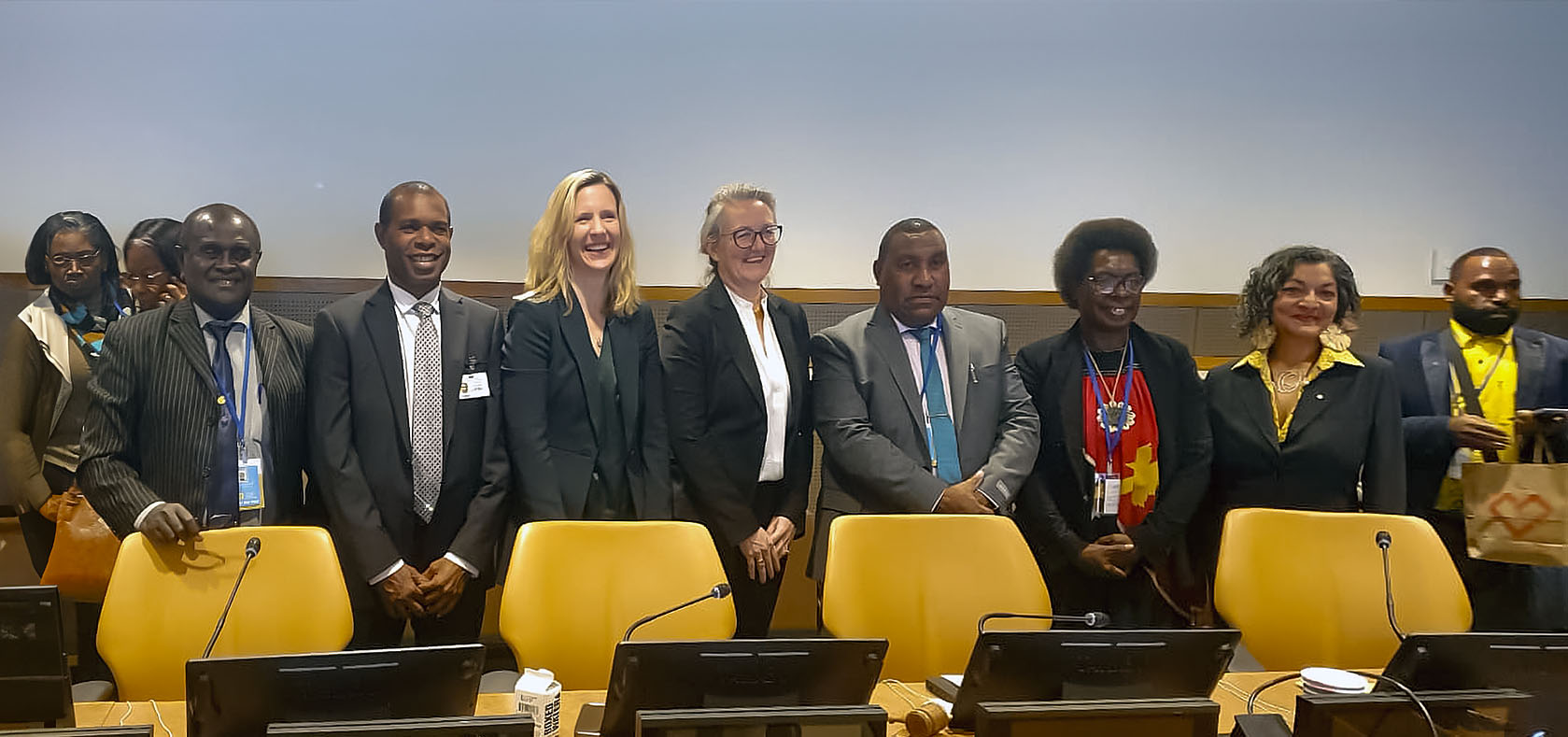CSW68 side event shines a spotlight on Pacific markets’ role in driving gender equality
Date:

Inspiring transformations are underway for Pacific women market vendors, who can now purchase land, pay their children’s school fees and feel more empowered in safer markets. These were in the spotlight at a side event on 18 March 2024 at the 68th Commission on the Status of Women (CSW68) in New York. Entitled “Collective Action to Drive Gender Equality in Pacific Markets”, it was organised by the UN Women offices for Fiji and Papua New Guinea (PNG).
The event began with a panel discussion with key PNG representatives, including Jason Peter, Minister for Community Development, Youth and Religion; Jerry Ubase, Secretary of the Department for Community Development and Religion; and Sarah Maim Nali, President of the Wewak Market Vendors’ Association in PNG.
In his opening address, Ubase emphasized the need to create an enabling environment that promotes women’s economic empowerment and combats stereotypes and bias. He further highlighted ongoing efforts in PNG to tackle pressing issues such as gender-based violence, saying: “We are advocating for the need to create a safe marketing system for our vendors, especially women and girls. Our people are not lazy. The lack of an accessible market is the major hindrance to unlocking our country’s economic potential.”
Nali shared her insights on the benefits of the markets for women’s empowerment and the amazing transformations these women have experienced with the support of UN Women.
“Women were able to purchase land and become landlords; children’s school fees were paid, and children were able to continue and complete their studies,” she said. “This led to more empowered women market vendors, enabling more partnerships with private businesses and public institutions.”
As part of his address, Cedric Alependava, Permanent Secretary of the Ministry of Women, Youth, Children and Family Affairs in the Solomon Islands, emphasized the need to strengthen meaningful collaborations with development partners to enrich opportunities for economic empowerment among rural women. This includes initiatives like UN Women’s Market for Change (M4C) project.
“The M4C project provided great opportunities for gender sensitization of national and especially local government counterparts, market management and other decision-makers to ensure gender mainstreaming and gender-responsive policies and programmes. In the Solomon Islands, market ordinances with a gender perspective are now in the final stages of council approval, and other supports were provided on food safety and hygiene and disaster preparedness,” said Alependava.
World Bank Senior Social Development Specialist and Global Gender Lead Helle Buchhave added that increasing women’s access to jobs was essential for economies in the Pacific, as “bridging the substantial disparities between men’s and women’s participation in better, more productive paid employment could raise GDP per capita by an additional 20 per cent in the space of just one generation.”
Some of the key constraints discussed for women’s access to jobs were related to social norms, legislation, policy implementation and access to infrastructure and services.
The Markets for Change project promotes gender equality through the economic empowerment of women market vendors in Fiji, Samoa, Solomon Islands and Vanuatu. This work, coupled with the women-only Meri Seif (Women Safe) transportation programme in PNG, has helped women feel safe and had a positive impact on women’s employment.
These interventions bring together governments, market vendors and market vendor associations, civil society organizations and UN agencies. They are implemented by UN Women in partnership with UNDP and with funding from the Governments of Australia, Canada and New Zealand, and PNG from the Australian and Japanese Governments.
The CSW side-event was supported by the Governments of Papua New Guinea and Solomon Islands, with support from the Governments of Australia, Japan and the Asian Development Bank.
For inquiries, please contact:
Maryann Lockington
UN Women Fiji Communications and Media Specialist
e: [ Click to reveal ]
Reuben Tabel
UN Women PNG Communications Analyst,
e: [ Click to reveal ]